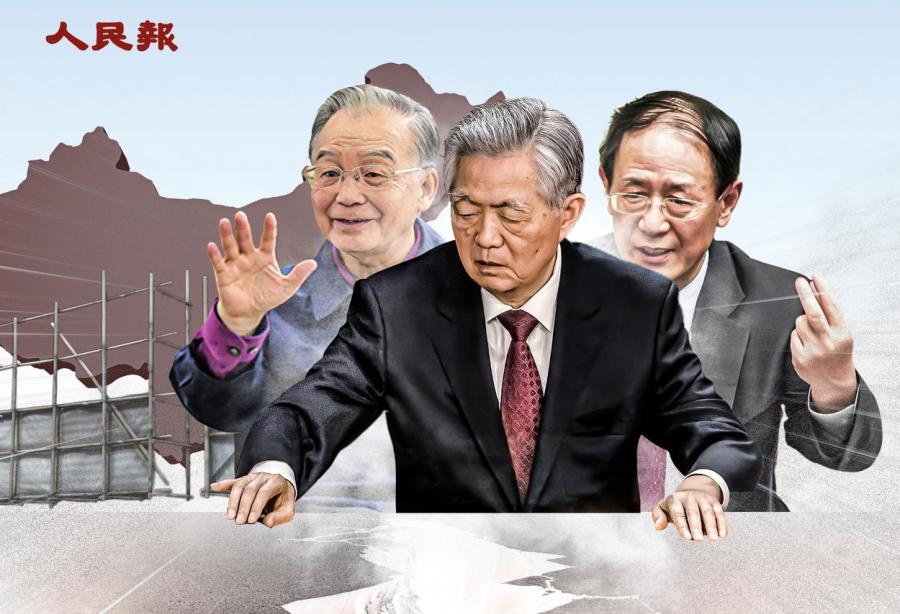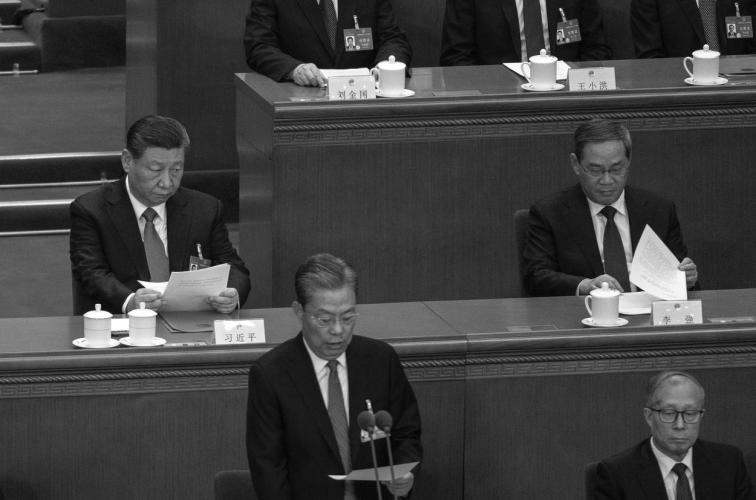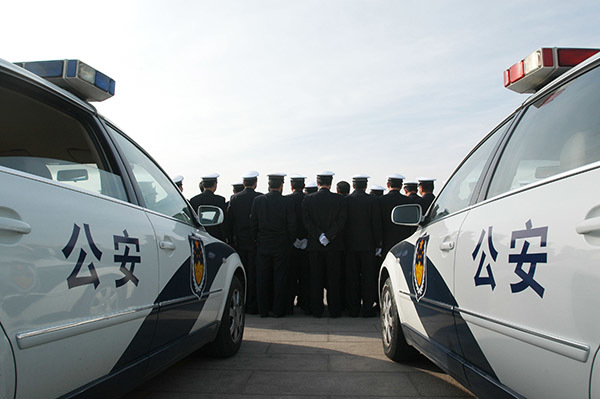Rumours suggest Wen Jiabao, Hu Jintao, and Hu Deping (from left to right) are in charge of China. (Image by People News)
[People News] On July 3, People’s Daily published an article commemorating former Chinese Premier Li Keqiang on what would have been his 70th birthday. While the article highly praised Li Keqiang, it also inserted references to Xi Jinping as the core of the Party and slogans such as “2442” (referring to Xi’s governance framework). Furthermore, the Party’s journal Qiushi deleted the same article from its website after initially posting it. These unusual signs have led analysts to believe that, ahead of the Fourth Plenary Session, and amid an ongoing struggle between pro-Xi and anti-Xi factions, Li Keqiang’s death has become a major issue within the Party and a focal point of their fierce political contest.
The July 3 article in People’s Daily, written by the Party History and Documentation Research Institute of the Central Committee of the Chinese Communist Party (CCP), was nearly 6,000 words long. It detailed Li Keqiang’s achievements throughout his career, from the Communist Youth League to his posts in Henan, Liaoning, and the State Council, and affirmed his performance in office.
The article praised Li for always prioritizing the people’s interests and for striving to address the urgent needs of ordinary citizens. It highlighted his frequent visits to enterprises, factories, rural fields, and grassroots areas.
Independent commentator Chen Pokong analyzed in his program that the article’s strong praise of Li Keqiang was essentially a slap in Xi Jinping’s face. He said that the way Li was portrayed in the article — as someone who confronted crises and disasters head-on — stood in stark contrast to Xi Jinping, who often avoids responsibility and only appears when things are calm.
The article also stated that Li Keqiang was honest and pragmatic, and that he took the lead in opposing formalism and bureaucratism.
Chen Pokong believes this implies that Li Keqiang actively opposed Xi Jinping’s extreme leftist agenda — one filled with empty rhetoric, false achievements, and a revival of Cultural Revolution-style governance.
The article also mentioned several key phrases — “collective leadership” and “democratic centralism” — which are known to be taboo under Xi Jinping. Meanwhile, terms like “scientific decision-making, democratic decision-making, and law-based decision-making” were hallmarks of the Hu Jintao era.
Why did such anomalies appear in this memorial article for Li Keqiang? What do they indicate?
Chen Pokong believes this reflects the tug-of-war between Xi’s faction and opposing forces. While the CCP had to commemorate Li Keqiang’s 70th birth anniversary according to internal rules, no symposium was held in his honour, indicating Xi’s guilt or intent to suppress the tribute.
Most of the People’s Daily articles praised Li Keqiang and, in doing so, highlighted stark differences between Li’s and Xi’s governing styles and philosophies.
Chen noted that since last year, People’s Daily has undergone major reshuffling at the top, with many senior officials being investigated — suggesting internal changes are underway.
According to Sing Tao Daily (Hong Kong) on June 9, People’s Daily’s website recently removed the names of two senior staff members from its “Leadership” section — Deputy Editor-in-Chief Hu Guo and Editorial Board Member/Secretary-General Yu Jijun.
The article also stated that after retirement, Li Keqiang continued to express support for Xi Jinping as the core leader. In the final paragraph, it again emphasized unity around Xi and highlighted the “2442” slogan — showing that the pen remains in the hands of the Xi faction. The article’s publication, therefore, appears to be a result of internal compromise.
Currently, the propaganda apparatus is overseen by Politburo Standing Committee member and Central Secretariat head Cai Qi, a close Xi ally. Minister of Propaganda Li Shulei is considered one of Xi’s top ideological aides, with some of Xi’s speeches reportedly written by him.
Regarding Qiushi deleting the commemorative article, Chen Pokong believes this indicates that Qiushi is still firmly under Xi’s control and that of his loyalists.
Qiushi frequently republishes Xi’s past speeches — from last year, the year before, even five or ten years ago — to maintain Xi’s dominant presence.
According to Chen, although the pen (i.e., the propaganda machinery) and the Party’s mouthpieces are still in Xi’s hands, the anti-Xi faction has started to fight back, resulting in two conflicting voices within the Party.
Chen Pokong pointed out that, in the complex and intense power struggle between the two factions ahead of the Fourth Plenary Session, the series of events — from People’s Daily publishing a tribute to Li Keqiang to Qiushi deleting it, with the article both highly praising Li Keqiang and forcibly inserting references to Xi as the “core” along with his “4424” governance formula — all serve as evidence that Li Keqiang’s death is not simple. It is a major internal Party incident.
Chen believes that the question of whether Xi Jinping will step down or retire, possibly moving into a second-line leadership role during the Fourth Plenary Session, hinges in part on the issue of Li Keqiang. His death may become a key flashpoint in this fierce political battle. Recently, there have been reports that Party elders such as Wen Jiabao, Wang Yang, and Li Ruihuan are strongly demanding a thorough investigation into the cause of Li Keqiang’s death.
The curtain has already risen on a major political drama, and various plotlines have begun to unfold. Since the Third Plenary Session last year, the turbulence has not stopped. Chen Pokong noted that the entire situation continues to evolve in a direction unfavourable to Xi Jinping and increasingly advantageous to the anti-Xi faction.
(Originally published by People News)









News magazine bootstrap themes!
I like this themes, fast loading and look profesional
Thank you Carlos!
You're welcome!
Please support me with give positive rating!
Yes Sure!